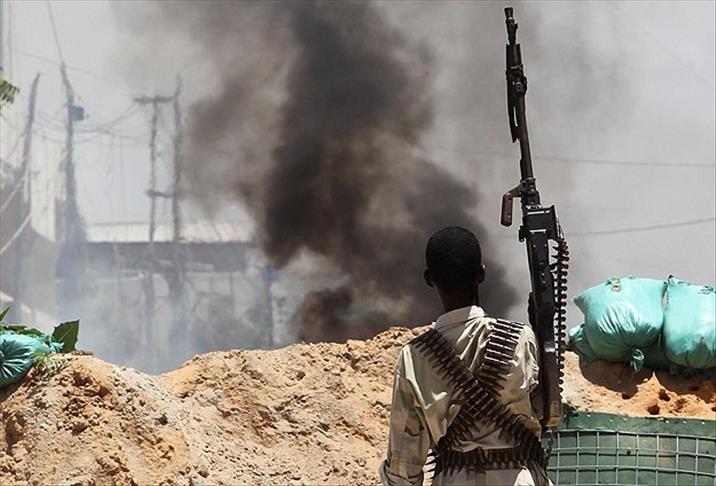
LAGOS
By Rafiu Ajakaye
A man claiming to be Boko Haram leader Abubakar Shekau reportedly appeared in a new video on Thursday, one week after the government formally announced his death.
"I hereby put to the lie the claim that I was killed," Shekau purportedly says in the new video, which the Daily Trust, a local newspaper, said was 36 minutes in length.
"I challenge you… You are not honest. You have no proof… Here I am, alive," he goes on to say. "I will only die the day Allah takes my breath."
The newspaper said it couldn't verify when the video had been released, but said the man featured in the footage closely resembled the man who had presented himself as Shekau in previous videos.
If genuine, the latest video contradicts recent assurances by the Nigerian military that Shekau was long dead and that a man who had impersonated him in recent videos – identified as Mohamed Bashir – had been killed last month in the country's northeast.
If this turns out to be the case, it would be the third time that the government's claims of Shekau's death turned out to be false.
Defense spokesman Chris Olukolade said he had yet to see the new video.
"We haven't seen any video," he told Anadolu Agency. "We will respond in a short while."
The Daily Trust quoted Shekau – or the man who claimed to be him – as taking responsibility for the recent downing of a military jet in Adamawa, one of the states hardest hit by the Boko Haram insurgency.
He was also quoted as saying that his "Islamic caliphate" had become fully operational in areas of the country under the group's control.
In the video, Shekau reportedly displays footage of a man who had his hand cut off for stealing and an unmarried couple given 100 lashes each after being convicted of "fornication."
In recent weeks, Boko Haram militants have overrun several towns across Nigeria's restive northeast, declaring them part of an "Islamic caliphate."
But the militant group is spurned by most of the country's Muslims.
Boko Haram, which means "Western education is forbidden" in Nigeria's local Hausa language, first emerged in the early 2000s preaching against government misrule and corruption.
The group later became violent, however, after the death of its leader in 2009 while in police custody.
In the five years since, the group – outlawed by Nigeria, Turkey and the U.S. – has been blamed for numerous attacks on places of worship and government institutions and thousands of deaths.
An estimated six million people have been displaced in the region as a direct result of the violence.
Anadolu Agency website contains only a portion of the news stories offered to subscribers in the AA News Broadcasting System (HAS), and in summarized form. Please contact us for subscription options.

